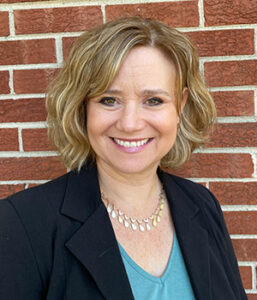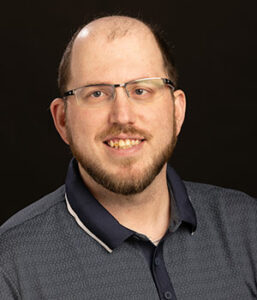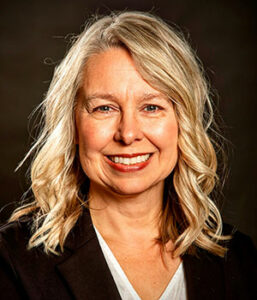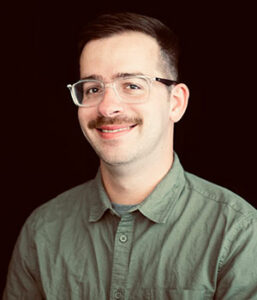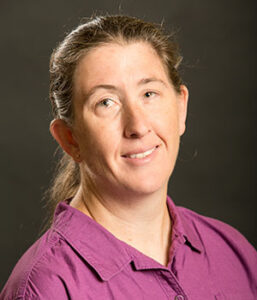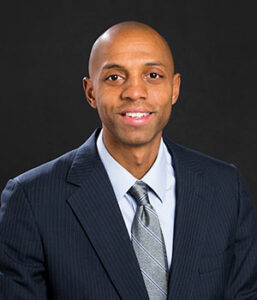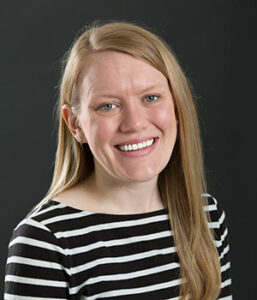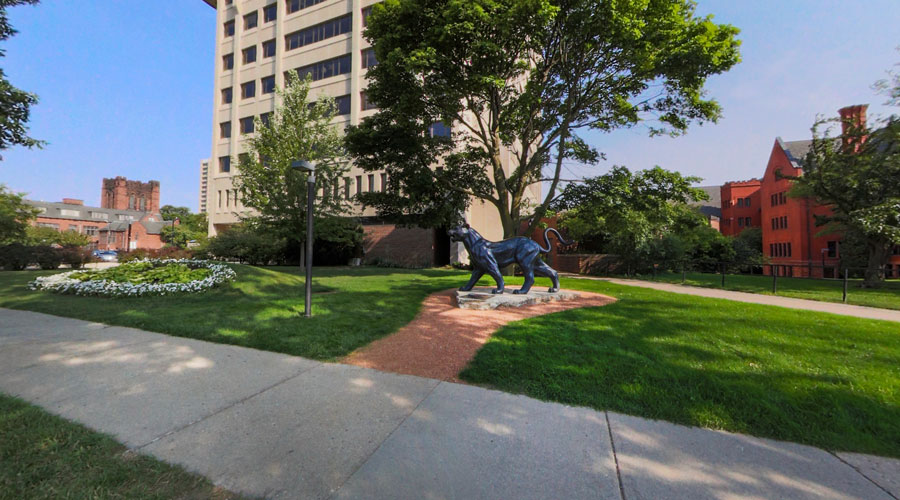Education: American Sign Language Studies BS
The American Sign Language (ASL) Studies program at UW-Milwaukee strives to provide a rich and rigorous educational experience that allows for students to develop linguistic proficiency and a deep respect for the Deaf culturo-linguistic community. All courses in the ASL Studies program are taught by native ASL users, which allows for language learning via immersion.
Program Type
Major, Minor
Program Format
On Campus
ASL Studies Program Vision
The ASL Studies Program inspires students interested in American Sign Language and Deaf culture to develop language fluency and cultural competence in order to pursue excellence in their careers, make meaningful connections in the Deaf community and become allies for equality.
Our values are based on the Five C’s: Communication, Culture, Community, Cooperation and Collaboration.
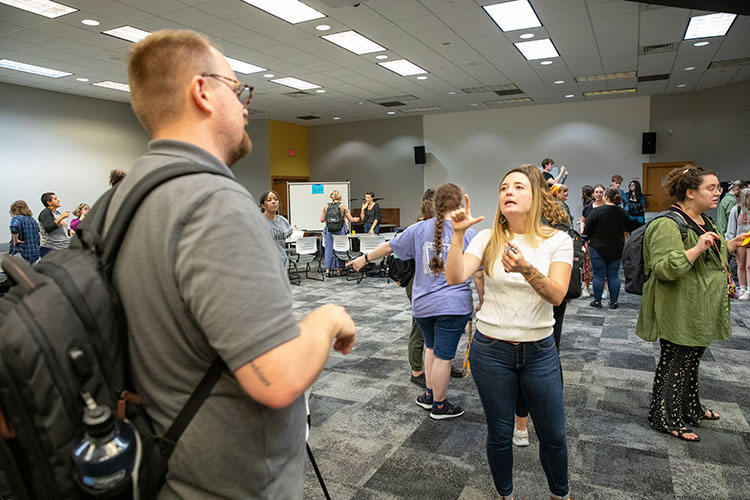
ASL Lab
Developing fluency in a language requires a multifaceted approach. In addition to excellent classroom instruction and socializing opportunities in the community, the ASL Studies program also has a language lab. Students in ASL V and VI, as well as any interpreter training students, can access the ASL Lab for advanced homework assignments and projects.
The lab is unique, because it’s staffed entirely by Deaf individuals. Two language mentors are also available to advanced students. Language mentoring is a key component to advancing in ASL fluency. Our mentors collaborate with lecturers and staff to guide students in their development.
For more information about the ASL Lab, contact Catherine J Giuntoli-Dubois, giuntolc@uwm.edu.
Living Learning Community (LLC)
The American Sign Language LLC establishes a community for Deaf students and students who know or are learning ASL. This unique LLC program enhances students’ knowledge in ASL outside of the classroom.
Students also build solid relationships with one another and the extended Deaf community. It’s through these interactions that students gain confidence in the social and cultural diversity of the signing community.
Study Abroad
Study abroad is a great opportunity to fully immerse in a different visual-gestural language and Deaf culture. Students experience another country’s visual language environment rather than relying on the audio-verbal environment they’re used to. This leads to enhancing one’s understanding of the visual language of ASL.
The three to four-week study abroad course is open to ASL and ITP students, as well as Deaf/HH students. It’s led by a Deaf study-abroad coordinator/instructor. The instructor prompts critical comparative analysis between two languages and cultures. Study abroad to other countries varies every other year. In the past, students have studied abroad in Italy, France and the United Kingdom.
ASL/English Interpreting
The mission of the American Sign Language/English Interpreting program is to educate students to be competent bilingual/bicultural interpreters. It accomplishes this by emphasizing service learning experiences in the Deaf community.
Our program philosophy “Deaf Heart Starts Here” takes hold the moment a student begins their preparation, because the path to becoming an interpreter begins with ASL Studies. Students can be confident that when they enter the ITP, they will be: competent in ASL, knowledgeable about Deaf culture and connected to the local Deaf community.
Program Requirements
A major in ASL Studies provides students a strong language foundation to pursue careers in which they will work directly with Deaf people. In addition to their GERs, an ASL Studies major requires a minimum of 45 credits in these areas:
- ASL courses (ASL I-VI): 18 credits
- Deaf Culture & Deaf History: 6 credits
- ASL linguistic studies and advanced skills courses: 18 credits
Students who choose the ASL Studies major are required to complete service-learning experiences in the Deaf community and will learn of the value in gaining citizenship into the community of people who use ASL as their primary language. These service-learning components also bring to light social justice issues that impact the community.
See our section on careers to explore how an ASL Studies major can enhance your vocational path.
American Sign Language Studies Minor
Students who decide to add an ASL Studies minor onto their primary field of study will develop an understanding of the Deaf community, lending itself to future collaborations and expanded job opportunities as an ally to this cultural-linguistic group. ASL minor courses enrich a student’s language and cultural competencies, which will enhance a future career. An ASL Studies minor will not be sufficient for fluency in the language, but it will provide a foundation of language, culture and social justice skill sets. Combined with the right major, this addition can enhance any resume.
The ASL Studies minor requires a minimum of 21 credits in the following courses.
| Course # | Course Title | Credits |
|---|---|---|
| EXCEDUC 301 | American Sign Language I | 3 |
| EXCEDUC 302 | American Sign Language II | 3 |
| EXCEDUC 303 | American Sign Language III | 3 |
| EXCEDUC 304 | American Sign Language IV | 3 |
| EXCEDUC 330 | Deaf History | 3 |
| EXCEDUC 352 | American Deaf Culture | 3 |
| EXCEDUC 500 | Fingerspelling & Numbers | 3 |
ASL World Language Teacher Certification
Students interested in teaching ASL as a World Language in a K-12 educational setting should pursue this program. This teaching certification program is a collaboration with the Curriculum & Instruction department in the School of Education. Students gain their ASL fluency and immersion experience via the ASL Studies Program and the pedagogy training with the World Language Program. During their course work and field experience, students receive support from the teaching staff within the ASL Studies program. For more information, please visit the English as a Second Language Education webpage.
Advanced Placement Testing
If a student has prior experience with ASL, they may be placed into an advanced level of ASL. The ASL Studies Program offers two pathways that students may choose:
American Sign Language Screening
This assessment is free to university students (incoming and transfer students). ASL courses offered at the University of Wisconsin-Milwaukee may teach different content than other courses. As a result, an ASL placement screening is conducted to ensure the student will be successful in the class they are placed in. The assessment is done in a virtual interview format by an ASL Studies instructor and is recorded.
The goal of the evaluation is to see how the student responds to different levels of ASL discourse based on our program’s objectives. The interview lasts an average of 15 minutes. Following the interview, the program will review the video and determine the student’s level, then inform the student (within a week) of the level at which they will be most successful. There are no retroactive credits given for ASL regardless of courses taken at other institutions. However, if the student would like retroactive credits or transfer credits, then the ASLPI may be a better option (see below).
Cost? There is no fee, but please fill out the ASL Screening Placement Registration Form to set up an interview.
American Sign Language Proficiency Interview (ASLPI)
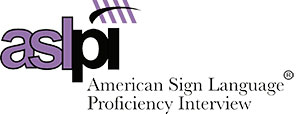
If the student would like retroactive credits or transfer credits for ASL classes, the American Sign Language Proficiency Interview (ASLPI) may be a good choice. ASLPI is a language evaluation tool used to determine a person’s ASL proficiency, offered through Gallaudet University. The principle behind this kind of evaluation is to see, through a live, virtual interview, what a person can do with the target language (ASL) at a given point in time in a variety of contexts.
The ASLPI is a 20-25 minute, interactive dialogue between the candidate and the interviewer. The interview is recorded and rated by a team of evaluators. The candidates are awarded an overall proficiency level on a 0-5 rating scale. Based on the rating given, the student will be placed in an appropriate level of ASL in which they will be most successful. In addition, any pre-requirements to that class will be waived and retroactive credits (maximum of 12) will be awarded. Depending on course placement, a student can be eligible for a maximum of 12 retroactive credits by successfully completing the course with a B or better. Ideally, ASLPI is designed for students whose heritage language is ASL or have organically learned ASL from the Deaf community.
For more information, visit the American Sign Language Proficiency Interview (ASLPI) webpage.
U.S. Bureau of Labor Statistics says a career as an interpreter is growing much faster than average, with 17% growth predicted through 2026. In addition to traditional careers like interpreting, new career possibilities open up as technology evolves. While on the surface, American Sign Language/English Interpreting program may seem like the best match for this field of study, a double major or a minor in ASL Studies can be used to enhance specialized careers such as (but not limited to):
Education
Whether you work with in a mainstream setting, a residential school or a post-secondary environment, competency in ASL and Deaf culture will equip professionals with the tools to provide or advocate for optimal access for Deaf, Hard of Hearing and Deaf Blind students.
- Deaf and Hard of Hearing teacher
- Special education teacher
- School counselor/school social worker
- School speech-language pathologist
- K-12 education interpreter
- Deaf mentor
- Paraprofessional
Health Care
Medical professionals who know sign language are in demand. Competency in Deaf community and cultural awareness is a great enhancement to your health care skills in providing direct access to critical services.
- Speech-language pathologist
- Audiologist
- Doctor
- Nurse
- Occupational therapist
- Clinical social work
- Clinical psychology
Government and Law Enforcement
Federal, state, and local government agencies offer opportunities to people skilled in sign language. Office holders who are fluent in ASL can become allies to the Deaf community by facilitating strong relationships between the community and the government as well as its political system.
- Vocational rehabilitation
- State offices
- Lawyer
- Commissions
- Judicial
- Detention facilities
- Police officer
- Firefighter
- Responder
Recreation and Entertainment
Travel agents and tour guides that know sign language can be found working in specialized Deaf programs at travel and tour agencies or even running their own agencies. The ASL Studies Program provides students who choose the entertainment industry with the tools necessary to design their events.
- Concerts
- Theaters
- Professional sporting events
- After school programs
- Community events
If you would like to inquire about the limitless benefits of an ASL Studies major or minor to any career path, contact Sunny Brysch at brysch@uwm.edu.
Faculty
- Assistant Clinical Professor, Teaching and Learning
- Program Director, American Sign Language Studies
- brysch@uwm.edu
- 414-372-0595
- Enderis Hall 279
- Teaching Faculty II, Teaching and Learning
- giuntolc@uwm.edu
- Enderis Hall 271
- Teaching Faculty I, Teaching and Learning
- marrakch@uwm.edu
- 414-285-1340
- Enderis Hall 267
- Sign Language Interpreter, Teaching and Learning
- Associate Lecturer, Teaching and Learning
- theresas@uwm.edu
- Enderis Hall 273
- Clinical Assistant Professor, Teaching and Learning
- wiggine@uwm.edu
- Enderis Hall 271
Advising
- (Last names A – L) – Tyree Bolden
- (Last names M – Z) – Nikki Claas
- Academic Advisor, Office of Student Services
- boldentc@uwm.edu
- 414-229-4721
- Enderis Hall 209
- Senior Academic Advisor, Office of Student Services
- nclaas@uwm.edu
- 414-229-4721
- Enderis Hall 209


